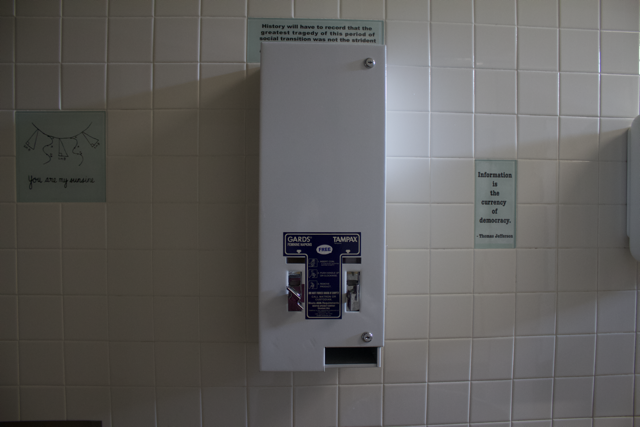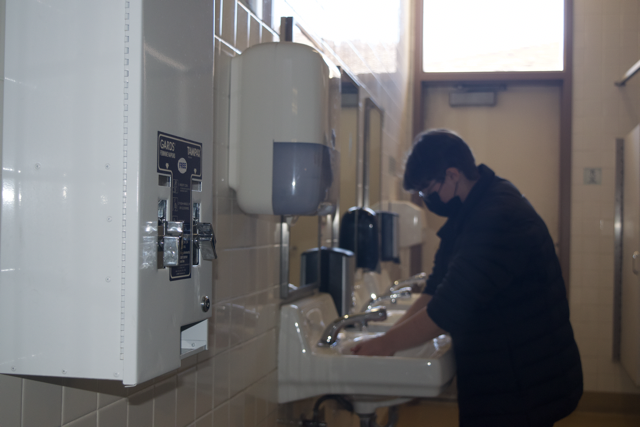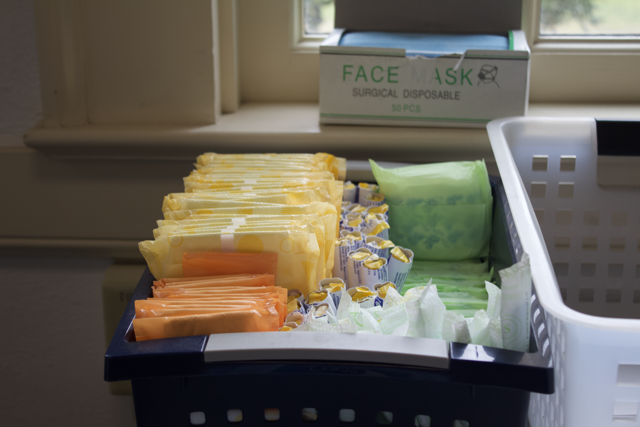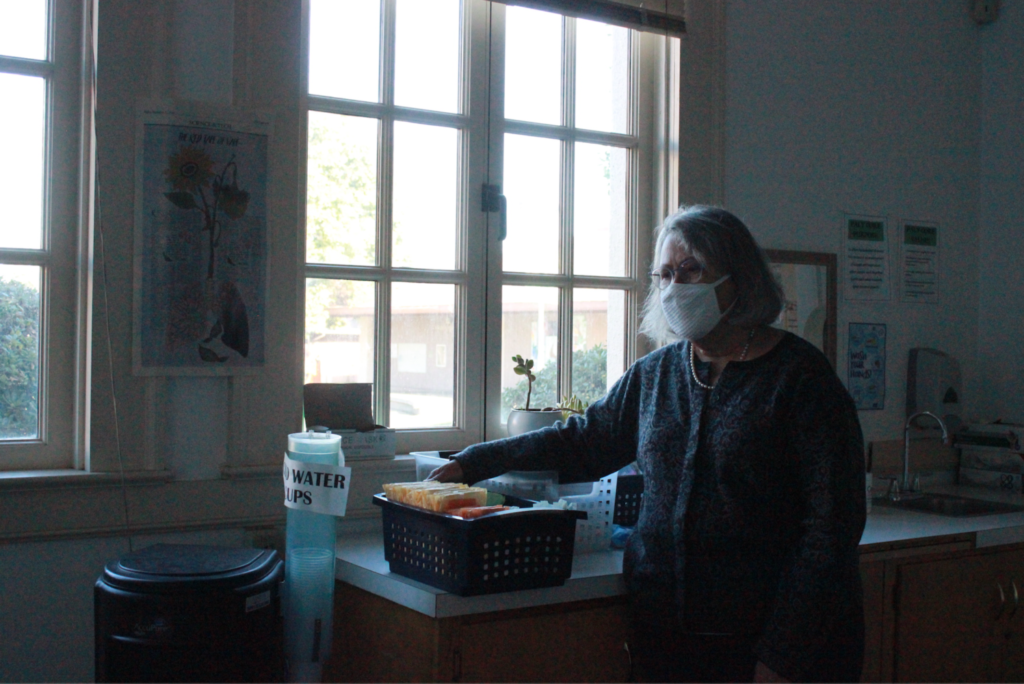$20 a month. $240 a year. $18,000 over the course of a lifetime. That is how much money an average female spends on feminine hygiene products, according to the National Organization for Women. This life necessity can be an expensive investment for low-income people, especially students who may have trouble accessing menstrual products.
Until the Menstrual Equity for All Act of 2021 was signed by Governor Newsom on Oct. 8, existing laws required public schools with 40% of students below poverty threshold to stock restrooms with free feminine hygiene products. The new bill requires public schools with students grades 6-12, California State Universities and community college districts to stock free menstrual products to stock the school’s restrooms with free menstrual products in all women’s restrooms, all-gender restrooms and at least one men’s restroom regardless of poverty threshold before the start of the 2022-23 school year.
Palo Alto High School administrators have already made plans to install more menstrual products in female and gender-neutral restrooms on campus.
“We met with the district last week and did a tour of all the bathrooms, and I had to order six of those dispensers,” Assistant Principal Jerry Berkson said. “So we were two days ahead of the state.”
Easy access
By stocking menstrual products in bathrooms, Paly administrators and health professionals aim to increase access to menstrual products for students of all socioeconomic backgrounds, regardless of their gender identity.
“I think it will be very helpful to those young women [who come from low-income families],” campus Health Technician Jennifer Kleckner said. “I have known students in the past who found it very hard to have access to those [menstrual] products, and it can be humiliating to not have them.”
Gender studies teacher Jaclyn Edwards said she believes that widespread accessibility to menstrual products across the school campus reduces the stigma surrounding the use of menstrual products for non-female students.
“It’s not about if a girl needs it and a man doesn’t,” Edwards said. “It’s acknowledging that there’s another community besides the binary and we’re focusing on transgender teens who may in fact need it [menstrual products]. By having it universal, it no longer puts that person in a position of feeling uncomfortable or not being able to get the products that they need because of how they identify themselves.”
“We have to shift our mindset from treating menstruation as a private matter to considering menstrual products a basic necessity.”
– Sam Yamashita, senior and
Paly Public Health Club co-president
According to Edwards, the idea that one’s gender determines their need for menstrual products should instead be based on one’s biological needs.
“They [the new bill] take away not only the question of gender, but it also takes away the question of your economic status, and just makes it universal, a kind of a universal standard,” Edwards said.
Junior Harvey Vostrejs, a transgender man, is hopeful that increased access to menstrual products will reduce stigma surrounding periods for students of all genders.
“I hope this will make people less afraid to talk about their period,” Vostrejs said. “It’s a normal, human thing. It’s something we should all feel comfortable talking about.”
For members of the transgender community like Vostrejs, including menstrual products in both male and female restrooms is a significant step towards gender equality.
“If men had periods, menstrual products would already be free,” Vostrejs said. “Making people pay for something natural that they can’t control is unfair.”
Looking for more
Public Health Club co-president Sam Yamashita believes one step toward gender equality at Paly is normalizing the use of feminine products.
“I’m happy to hear that they passed that bill because being a woman shouldn’t come with a tax, and alleviating the cost of menstrual products — which can really add up —from women is definitely a step in the right direction,” Yamashita said. “We have to shift our mindset from treating menstruation as a private matter to considering menstrual products a basic necessity, because it really is just a basic human process that should be treated as such. We should consider tampons and pads similar to how we would think about toilet paper and hand soap, which comes with destigmatizing the discussion of menstruation.”
According to Mathew Signorello-Katz, co-president of FLOW club, which advocates for women’s health, wellbeing and dignity, the introduction of this new law proves to be a significant step in their club’s mission to improve widespread access to free menstrual products.
“It’s a good first start, but it’s one of many legislative actions that need to be taken regarding menstrual health,” Signorello-Katz said. “And I’d like to see this become a more nationwide effort in which you have menstrual products being provided for free in every school, across the United States.”






